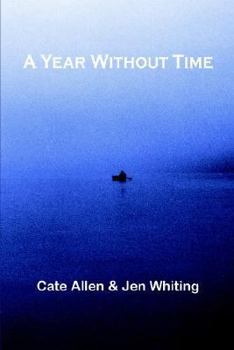A Year Without Time
Select Format
Select Condition 
Book Overview
"No, no, no, that's not how it happened--" I said to my daughter over and over and over. Seems that we each had different views, learned different lessons, and saw different vistas during our year-long expedition following the Lewis and Clark route down the Missouri River in canoes. We've told the story so many times, given so many talks, that finally, we decided just to write it all down, differences and all. In fact, we think one's unique views are the quintessence of adventure. We wrote separately, one in New Jersey, one in Arkansas, not reading the other's words until we'd finished writing our own chapter. We set deadlines, and e-mailed our finished chapters on the stroke of midnight, eager to read what the other had experienced. In the process, somewhere along the way, we fell in love all over again. With the river, with the river towns, with our crew, and with each other. We hope you use A Year Without Time as the jumping off point into your secret dream. This description may be from another edition of this product.
Format:Paperback
Language:English
ISBN:0307390438
ISBN13:9780307390431
Release Date:February 2009
Publisher:Knopf Doubleday Publishing Group
Length:304 Pages
Weight:0.85 lbs.
Dimensions:0.9" x 5.0" x 9.0"
Customer Reviews
6 customer ratings | 5 reviews
There are currently no reviews. Be the first to review this work.





















